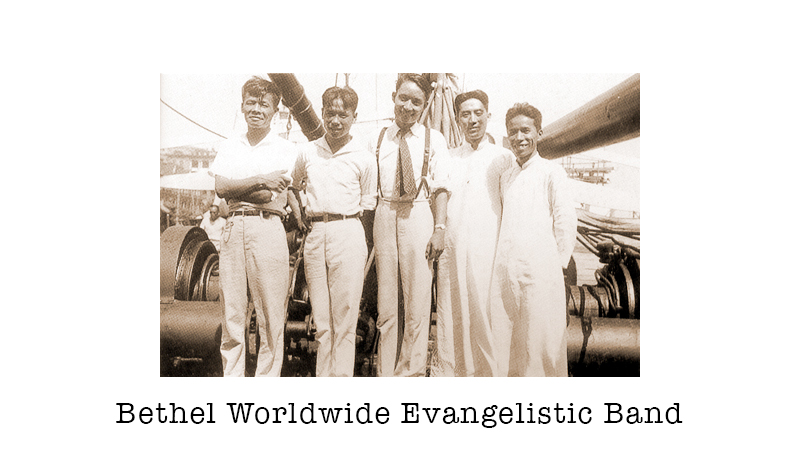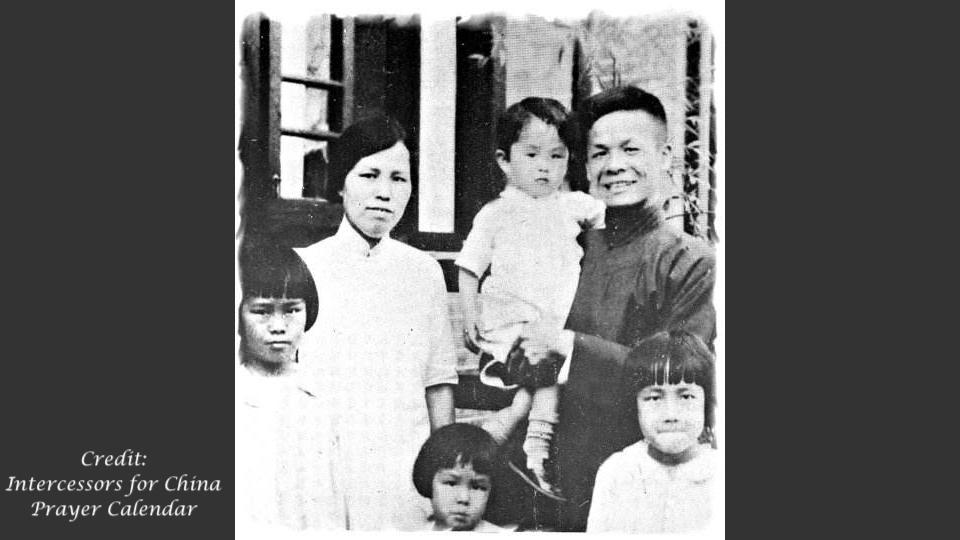



John Sung was born in Putian, Fujian on September 27, 1901. He was the sixth child born to a pastor’s family and was given the name “Zhu’en” (Lord’s Grace). As a young man, he chose the name “Shangjie” (Noble Frugal), and he won a scholarship to attend college in the United States. In just seven years, he earned three degrees and won many academic awards, but drifted from his childhood faith.
On February 10, 1927, while enrolled in a liberal seminary, Sung had a vision in which the Lord called him to a ministry of evangelism and gave him the name “John”. With his childhood faith restored, this new John began boldly witnessing. The shocked seminary leaders had him confined to a psychiatric hospital where he read the Bible 40 times during his six months of confinement. Upon his release, he sailed for China, and on the voyage home marked his death to self by throwing overboard all of his prizes and diplomas (except for the Ph.D., which he gave to his mother).
Shortly after his return, he married Yu Jinhua (余锦华), the wife selected by his parents, and they had five children. He spent three years doing country evangelism in his home province and then moved to Shanghai. For the next decade, usually preaching three times a day, he had a powerful evangelistic ministry in China and Southeast Asia. Because of his Fujian dialect, he usually spoke through translators. His passionate messages brought thousands to tears of repentance, and left his clothes soaked through with perspiration.
His health broke during this time and he developed extremely painful, bleeding fistulas of the bowel. His first surgery was in Shanghai in March 1940, but when the sores did not heal properly, he moved to the drier climate of Beijing for a prolonged convalescence. Further surgeries in Beijing and Tianjin were not successful. He died in Beijing on August 18, 1944, leaving his wife and three daughters.
During the first year of John Sung’s 2 ½ years with the Bethel Band, the team traveled 55,000 miles in 13 provinces, gave 1,200 messages, and saw 18,000 decisions for Christ. By the time of his death, it was estimated that nearly 10% of the Christians in China had come to the Lord through his ministry. Sung was known for his powerful and pointed calls for repentance from sin. The biblically conservative theology of the modern Chinese church, both registered or unregistered, is a testimony to his impact. Although God healed many through him, John Sung cautioned that the evidence of being filled with the Holy Spirit was not gifts like tongues but rather a life of love and holiness.
John Sung kept extensive diaries, and during the Cultural Revolution, the Red Guards seized them from his widow. When the Cultural Revolution ended, one of his daughters asked for their return. She was repeatedly put off, but finally a government official sent her to a warehouse, where she found a huge mound of confiscated goods. She circled the mass in tears, wondering how she would ever find her father’s books. Finally she stopped and called out to the Lord for help. When she finished praying, she glanced down, and through her tears she saw her father’s precious diaries lying at her feet.
In the past I deemed evangelism the most important work, but now I see that prayer is more important than anything.
The Diaries of John Sung: An Autobiography Translated by Stephen L. Sheng and Luke H. Sheng, p. 205.
The thing Satan fears the most is saints praying together in one accord. Praying together in one accord is the primary stepping stone to revival…A church will die for lack of prayer.
The Diaries of John Sung: An Autobiography Translated by Stephen L. Sheng and Luke H. Sheng, p. 228.